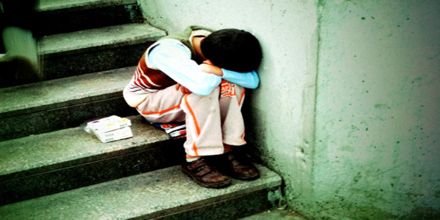School burden make Childhood Stress
All parents desire their children to do well. But unrealistic expectations not only have potentially harmful long-term psychological possessions, they can damage children academically in the here and now. That’s according to a new study that finds getting kids to do well is even more of a tightrope than we thought. Several pressures does help children attain more, but expecting the unattainable simply makes them do worse.
Be Aware of the Signs of Childhood Stress
Signs of anxiety from too much pressure to succeed at school include: sleep deficiency, eating disorders, depression, extreme worrying, unethical, and burnout. Loss of concentration in activities previously enjoyed or withdrawing from friends and family may also occur.
“Anxiety can present differently in children than in adults,” says Jason Schiffman, MD, resident physician in the Department of Psychiatry and Biobehavioral Sciences at UCLA. “While adults are typically able to identify and express when they feel anxious, children may just complain of physical symptoms or not say anything at all.”
Ordinary physical symptoms are stomachaches, diarrhea, headaches, and rashes. Younger children may occurrence nightmares or refuse to go to school. Teens may engage in destructive or obsessive behaviors including using drugs and drinking alcohol.

Why Parents Pressure Kids
Parents can be well-intentioned in wanting their kids to do well in school, but they are often too heavily influenced by a culture of academic intensity. They see the booming test prep industry and feel pressure of their own to make sure their teen achieves a high score on the SAT. At many schools, parents can track their child’s progress online and access their grades on tests, quizzes and homework assignments, creating a situation where they have so much information, they can start to obsess over every single score. Of course, there are the looming fears surrounding college admission. Parents are all too aware it’s much more difficult to get into college in today’s world. By ramping up the academic pressure, they’re hoping to spare their children the disappointment and feelings of failure that may come along with not getting admitted to college. “Rejection can be heart-breaking and devastating.
Research
Researchers at the UK’s University of Reading looked at the numbers from a study of more than 3,500 students in Germany from 2002 to 2007. The study, according to an article in Science Daily, “assessed student math achievement as well as parental aspiration (how much they want their child to earn a particular grade) and expectation (how much they believe their child can achieve a certain grade) on an annual basis.” They found that when parents pushed kids to achieve, they did rise to meet the expectations. But when parents tried to nudge kids past their realistic potential, the effort backfired, and the students actually did worse.

Reducing Pressure: What Parents Can Do
If you find you’re putting undue pressure on your kids to achieve academically, try to remember it’s your job to keep their stress levels under control. If they seem overwhelmed, don’t shy away from talking to their pediatrician or a counselor who specializes in teen or family issues. Remember to nurture your child’s strengths — so she thinks science is boring and can’t seem to earn above a B, but loves to draw. That’s okay! Try to be accepting and sign her up for an art class. Setting realistic expectations is also important. Unless your child is the rare student who truly loves every subject, it’s not reasonable — or healthy — to require As across the board. Also, give your child the chance to relax. Just like adults, kids need periods of “check-out” time in order to alleviate tension and reduce stress.
Parents can also take various actions to keep stress in check. Keeping an open dialogue and a watchful eye is critical. Talking to teachers, the pediatrician, and even a psychologist when necessary, is also important. Setting realistic expectations, nurturing children’s strengths, and providing opportunities for relaxation and vacation help alleviate tension and reduce stress.
To double down on those findings, researchers reviewed the results of a study involving 12,000 kids and parents in the U.S. The two-year investigation came up with the same findings as the German survey, and offers a cautionary tale for parents.
Preventing School Stress: The Bottom Line
Here’s everything you need to know about keeping healthy stress from becoming distress:
- Spend time with your children.
- Give your kids a stable home environment. Negotiate home rules, including consequences for rule breaking and stick to these rules.
- Monitor their eating habits.
- Don’t just talk to your kids. Communicate with them. When children misbehave — and they will — try to understand their behavior instead of merely punishing it.
















